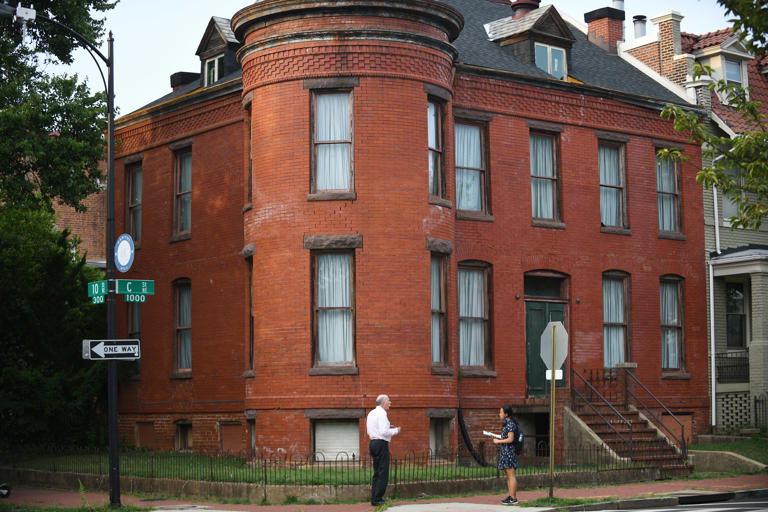In a significant development near Washington D.C.’s prestigious Capitol Hill neighborhood, a long-standing legal battle culminated in a substantial judgment against the owner of a vacant property. Attorney General Brian Schwalb recently announced that George Papageorge, the proprietor of the property located at 1000 C St. NE, must pay a staggering $1.8 million in back taxes, accrued interest, and associated penalties. This ruling, handed down in D.C. Superior Court, marks the culmination of a legal saga initiated by then-Attorney General Karl A. Racine in 2022.
The property, held under the entity 10th and C Street Associates, has garnered notoriety within the community as an eyesore and a persistent source of complaints. Given the District’s efforts to combat blight and encourage property upkeep, vacant and derelict properties are subject to significantly higher tax rates. However, the lawsuit alleged that Papageorge had falsely claimed occupancy of the building for several years, thereby evading the heightened tax obligations. This assertion constituted a violation of the city’s False Claims Act, which had been expanded in 2021 to encompass tax-related offenses.
The legal proceedings unfolded against the backdrop of a property that had long remained unoccupied and neglected. Despite repeated attempts to address its condition, including numerous vacancy notices, the building persisted as a symbol of urban decay. The judgment reflects not only the financial penalties incurred by Papageorge but also the consequences of his alleged deceitful practices over the years.
Schwalb’s office hailed the ruling as a victory for accountability and fiscal responsibility. The judgment compels Papageorge to pay the outstanding taxes dating back to 2008, along with damages for violating the False Claims Act and other associated penalties. Among the liabilities imposed is an accumulation of $389,561 in unpaid vacant-property taxes amassed over a span of 15 years.
In response to the verdict, Papageorge was notably absent from the public discourse, leaving the community to reflect on the implications of the judgment. The property itself, characterized by boarded-up windows, overgrown vegetation, and a visibly deteriorating facade, serves as a tangible reminder of the challenges posed by neglected urban spaces.
The news of the ruling reverberated across social media platforms, eliciting positive reactions from members of the community who had long advocated for action against the property’s owner. D.C. Council member Charles Allen expressed satisfaction with the outcome, emphasizing the broader significance of holding property owners accountable for their neglect. He underscored the detrimental impact of vacant properties on neighborhood vibrancy and safety, portraying the ruling as a cautionary tale for landlords who shirk their responsibilities to the community.
Ultimately, the judgment against Papageorge serves as a testament to the District’s commitment to upholding standards of property maintenance and fiscal integrity. As the legal process concludes, the focus now shifts to the future of the property and the broader implications of the ruling for property owners across the District.
